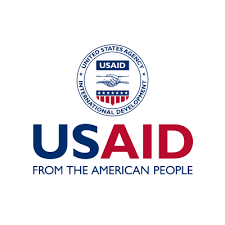Part 4: What is going on and why you should care
February 04, 2025
What is going on right now and why you should care
As of February 3, USAID appears to be closed to employees. The Secretary of State announced he is now the acting director of USAID, which means the State Department seized another government agency. The USAID website has been disabled and it appears that there is significant, intentional confusion about what the presidential action and subsequent events mean. In this chaos, international programs – including humanitarian work that provides food, sanitation, and refugee services for people in war-torn areas around the world – have come to a sudden halt.
Make no mistake. Because of these actions, and if humanitarian aid isn’t completely and immediately restored, vulnerable people will die. They will starve to death. They will die because they didn’t receive medicine they need. They will die because they have no access to hospitals or clinics.
They will be people we don’t know, don’t see, living in places we can’t point easily to on maps. For this reason, it will be very easy for us to pretend it didn’t happen or accept the faulty excuse that they were enemies of America.
But what else?
Foreign aid – 91% of which is administered through USAID – is a key strategy to fight terrorism and protect Americans and our allies. It also alleviates poverty and saves the lives of people living amid war and the aftermath of natural disasters, and builds economic development in low-resource areas.
Because American aid tends to be focused in areas that are often referred to as “developing,” other international actors will have the opportunity to move in after American has left. Both China and Russia have their own foreign aid efforts to gain a foothold in the political and economic affairs of countries in Africa and Asia. So, what could have been the opportunity for building relationships (and alliances) with America will now be led by other world powers who wish to gain international prominence – it must be noted that other world powers have traditionally not valued democracy, human rights, or free markets as Americans have tended to.
Another potentially concerning outcome to the American halt of foreign aid is longer term, particularly because of the suddenness of the stopping. Extremism grows well in places of poverty and desperation; extremism is also a precursor to terrorism. When people are hungry, in pain, dying, oppressed, and suffering – and they have no power or options to help themselves or others – they are ideal candidates for recruitment into organizations that use violence and terror for political gain.
The U.S. Department of State has a long list of Designated Foreign Terrorist Organizations. None of these groups -- who our government regularly monitors because we believe they would attack Americans here or abroad – come from places where people experience freedom and live in economic and political security. They recruit from populations, often targeting young people, where there is poverty, instability, and little economic opportunity.
In short, terrorist organizations around the world are recruiting in the very places our foreign aid is helping to address poverty, promote democracy, and develop economies. I will repeat the assertion this blog started with. Foreign aid – 91% of which is administered through USAID – is a key strategy to fight terrorism and protect Americans and our allies. It also alleviates poverty and saves the lives of people living amid war and the aftermath of natural disasters, and builds economic development in low-resource areas.
For the last 23 years, Hospital Sisters Mission Outreach has worked from the belief that all people, regardless of where they happen to be born, deserve dignified health care because we are all loved by the same God. We see the abundance of resources we have in the United States, and we share them with our clinical partners in other parts of the world. We work with doctors, nurses, administrators, and community leaders who care for their people as much as we do ours – and it’s our privilege to collaborate with them and support their growth.
Our American donors, financial and material, make this work possible and it’s because Americans, overall, believe in doing good. We believe in giving people a fighting chance, particularly those who may have been dealt a tough hand in life. We believe in hard work, in sacrificing for what is noble, and for taking care of people because it’s the right thing to do. For many of us, these values we hold are rooted in the example of Jesus of Nazareth, whose life and death we continue to proclaim, particularly through our concern for those who experience injustice and poverty.
We can disagree about topics without hurting vulnerable people through political grandstanding and “shock and awe” actions. We can question our policies without screaming at each other or putting thousands of people, here and around the world, out of work or out of food.
We’re Americans and that means we must hold ourselves to high standards to promote justice for all. We can protect our own interests and help others, and we are morally obligated to do so. In the name of the people around the world who need us to be the Americans we’ve always aspired to be, let’s remember that.
OTHER BLOGS IN THIS SERIES:
Part 2: What is "foreign aid" and who gets it?
Part 3: What does foreign aid actually do?
